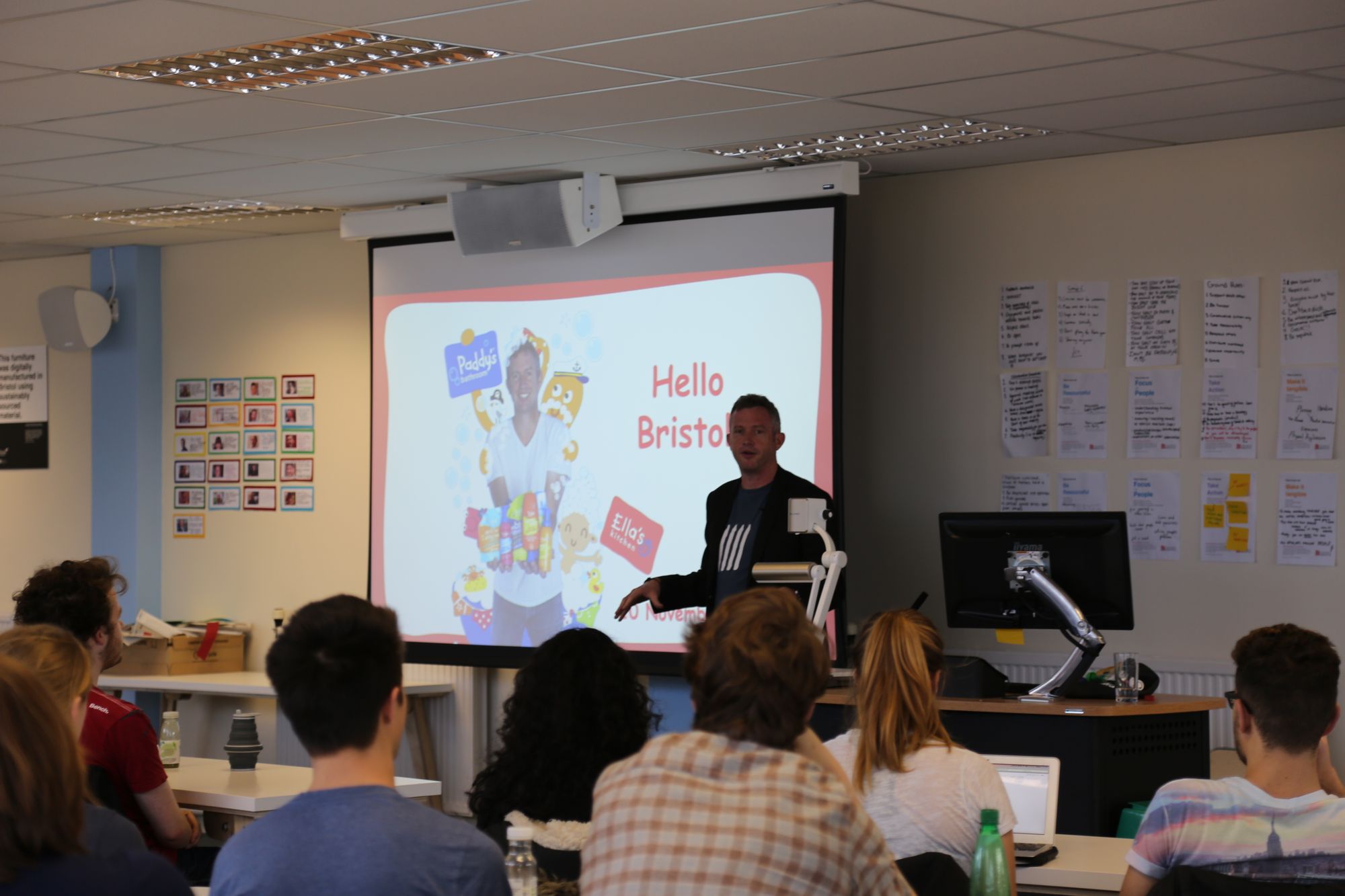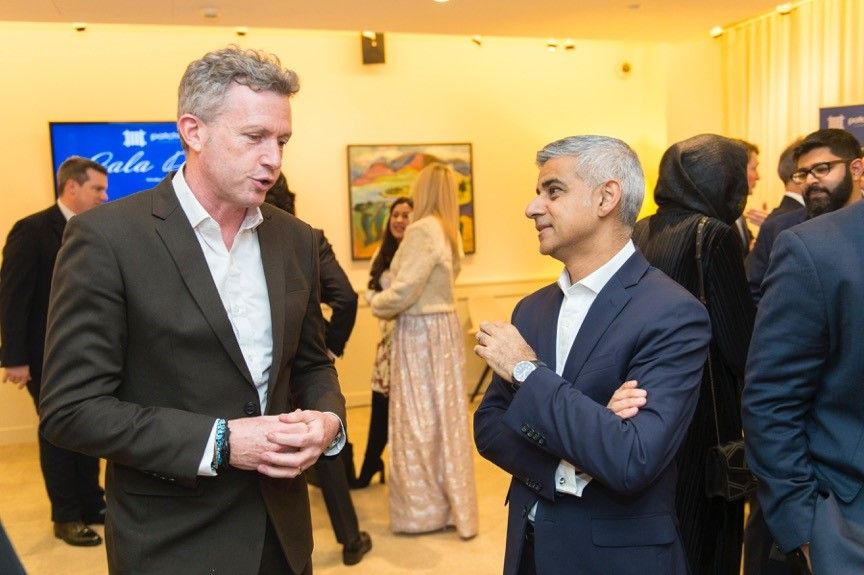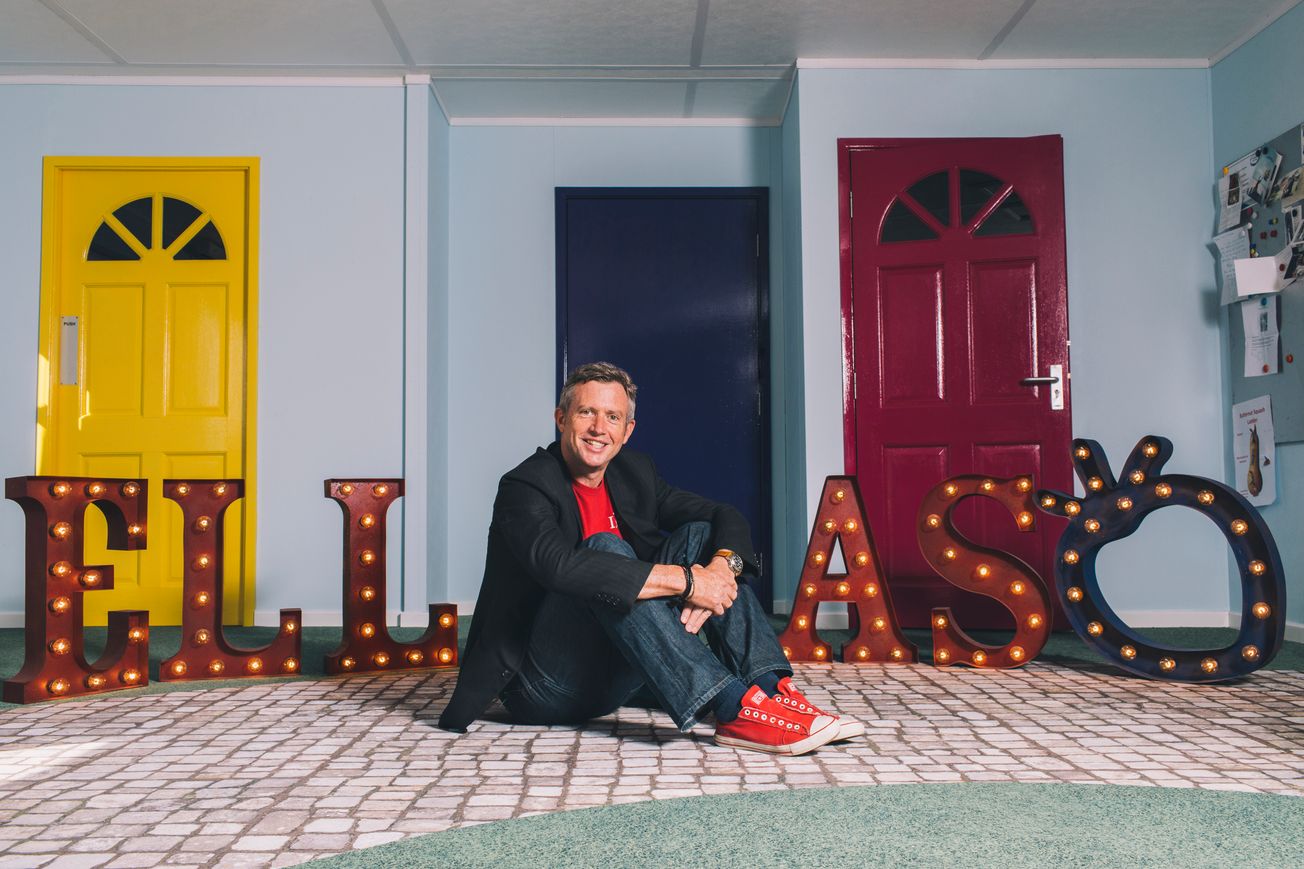By Robin Connolly, Features Editor
As part of Global Entrepreneurship Week, Bristol Alumni, Paul Lindley talks about his experience going from University of Bristol student into the world of business.
Community, people and relationships are ‘the only thing that's important’ according to Paul Lindley: Bristol alumni, once KPMG accountant, Deputy Managing Director of Nickelodeon and founder of Ella’s Kitchen. Now, he chairs the Mayor of London’s Child Obesity Taskforce, has a seat on the Board of Toast Ales and is a trustee of Sesame Workshop, amongst other charity work, child welfare campaigning and social enterprise... busy man!
Paul speaks fondly of his time at Bristol, although not through rose-tinted spectacles. He emphasises how important it is that we all recognise, as well as learn from, our mistakes. ‘We all face failure in our life. We're going to fail far more than we succeed. And it's how we faced that, that's really important.’
Paul had to change course at the end of his first year at Bristol, as he quickly realised his original enrolment in Pathology was not for him, despite having enjoyed Biology at school. He switched to Politics and Economics instead. Paul has taken positives from this experience, telling me ‘you've got to take comfort that you've got to learn and adapt from that failure and make a success of that experience, and you've just got to have the resilience and the determination to find your purpose and to just continue.’

Another lesson that came from his time at Bristol was the importance of investing in human relationships. He seems so sure when he says to me that ‘community and people and relationships are really,’ (pausing) ‘in fact, they're the only thing that's important’.
Explaining this in the context of the world of entrepreneurs, he says that ‘it's not your, you know, brilliance and your sort of specialness, that is going to make you a fantastic entrepreneur and create products and services that are going to improve people's lives. It is your ability to persuade and inspire people to work with you, invest in you, buy with you, that is going to help that idea become a reality.’
We all face failure in our life. We're going to fail far more than we succeed Paul Lindley
He encourages university students to gain a range of experiences and understanding of ways of learning. It’s ‘the breadth of experience that you can have, which is vital in life.’ To Paul, University is more than just a place where you should excel in academia. ‘I think Universities have huge responsibility beyond just teaching academic excellence, to inspire young people to deliver all they can, for themselves and for their community and society.’
Paul is far more than qualified to be giving advice on entrepreneurship, confessing to me that Ella’s Kitchen ‘at least doubled its turnover for each of the first six years. I sold it up after seven years for over 100 million dollars - it's public record.'
Ella’s Kitchen baby food is now sold internationally and is dominant within its market. The brand has won multiple awards and is a household name, as well as being easily recognisable. When I think of baby food, I for one think of Ella’s Kitchen pouches. He explains to me that the key to its success was the mission behind the product, that ‘it had a purpose and a mission in its DNA,’ a purpose made all the more important because it ‘was beyond making money.’
I think universities have huge responsibility beyond just teaching academic excellence Paul Lindley
Paul believes that in order to be successful in business, entrepreneurial ideas must hold two things. Firstly, some experience of life outside of bubbles that we so often blow for ourselves. ‘The most influential people, the most knowledgeable people are not the people with the degrees or with the 30 years of, you know, business experience. They're the people that are living with the problem day-in, day-out.’
Always affirming the importance of learning from others, from our experiences and from our mistakes, he uses the analogy of a young child to bring home this point. He says as toddlers, we learned ‘with lived experience of failing every single day. When we learned to walk, we'd have fallen over 500 times, before that final day.’
He illustrates that even though we may have fallen over 499 times before, on the ‘500th time we worked out what we did wrong.’ ‘If we could do more of that as adults not be frightened of failure,’ if we can ‘learn and adapt and be determined and be ambitious, then we'll have better entrepreneurs and a better society.’

Secondly, he tells me how at the heart of any great idea there needs to be passion for what you do. He is clear that ‘it is the passion that will get you out of bed every single morning because you believe in the mission and the reason you're doing it beyond the making the money.’ It strikes a chord with me when he poses the question ‘if you're not passionate, how on earth are you going to get an investor to invest in you?’
For students with entrepreneurial plans, Paul suggests that we take advice from our peers and those who are ahead of us in their career journeys ‘if you are a networker and you choose to listen, you will learn stuff. If you choose to talk, other people will learn stuff and you'll learn nothing except the beauty of your voice - might be misguided.’
‘if you're not passionate, how on earth are you going to get an investor to invest in you?’ Paul Lindley
Communication is always key - ‘if you've got a great idea, talk to lots of people about it, get feedback, be brave.’ Candidly, he reveals that we will ‘get a lot more negative feedback than positive feedback,’ and that we should test any positive feedback received. Paul himself learned this the hard way, from the failure of his second start-up, Paddy’s Bathroom.

Yet, his most important piece of advice is, perhaps, to START! ‘Start. There are millions of people who could have been the best entrepreneurs because they had an idea but weren't brave enough to put the first foot forward and weren't confident enough to know that it might fail.’ He also points out that ‘not everybody is cut out to be an entrepreneur, you've got to have a little bit of - you're going to jump without a parachute about you.’
Paul is inspiring without being clichéd. He gives sensible advice that comes from a place of knowledge and understanding of the typical, as well as non-typical, UoB student. It is clear to me that he believes in young people and wants us to strive to be the best entrepreneurs we can be – so, I say, may we strive on!
Featured: Courtesy of Paul Lindley
What do you think of Paul's advice? Tell us in the comments!









